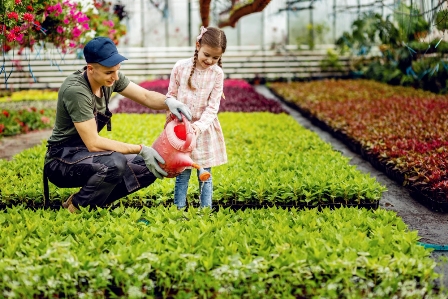In a world increasingly focused on environmental sustainability, adopting green living practices has become paramount. One area where individuals can make a significant impact is in their own gardens. This article explores various sustainable landscaping ideas for creating an eco-friendly garden that not only enhances the beauty of outdoor spaces but also contributes to a healthier planet.
Choosing Native Plants
When embarking on a journey toward sustainable gardening, the first step is to choose native plants. Native plants are adapted to the local climate, requiring less water and maintenance. This not only conserves resources but also promotes biodiversity in your garden.
Water Conservation Strategies
Efficient water use is crucial for sustainable landscaping. Drip irrigation systems deliver water directly to the base of plants, minimizing wastage. Additionally, rainwater harvesting allows you to collect and use rainwater, reducing dependence on traditional water sources.
Composting Made Easy
Composting is a simple yet effective way to enhance soil fertility and reduce waste. Start a compost pile in your garden, incorporating kitchen scraps, yard waste, and other organic materials. This not only reduces the need for chemical fertilizers but also minimizes your ecological footprint.
Natural Pest Control Methods
Chemical pesticides can harm the environment and beneficial insects. Instead, opt for natural pest control methods such as companion planting, introducing beneficial insects, and using neem oil. These approaches keep your garden healthy without compromising the ecosystem.
Energy-Efficient Garden Design
Designing your garden for energy efficiency involves thoughtful planning. Incorporate solar-powered garden lights, which not only illuminate your outdoor space but also harness renewable energy. Choose eco-friendly materials for pathways and structures to further reduce your environmental impact.
Recycling in the Garden
Recycling extends beyond the household into the garden. Repurpose old items such as pallets, tires, or containers as planters. This not only adds a creative touch to your garden but also reduces the amount of waste in landfills.
Sustainable Lawn Care Practices
Traditional lawn care often involves harmful chemicals. Instead, consider using organic fertilizers and natural pest control methods. This not only keeps your lawn lush and green but also contributes to a safer environment for pets and children.
Attracting Beneficial Wildlife
Create a welcoming habitat for beneficial wildlife like bees, butterflies, and birds. Plant flowers that attract pollinators, set up bird feeders, and provide water sources. This not only enhances the biodiversity of your garden but also plays a crucial role in the larger ecosystem.
Smart Irrigation Technologies
Modern technologies offer smart solutions for efficient irrigation. Smart irrigation systems use sensors and weather data to optimize watering schedules, preventing overwatering and conserving water resources.
Vertical Gardening for Small Spaces
For those with limited space, vertical gardening is a creative solution. Utilize walls, fences, or vertical structures to grow plants vertically. This not only maximizes space but also adds an interesting visual element to your garden.
Eco-Friendly Garden Decor
Extend sustainability to your garden decor by opting for eco-friendly options. Choose decorations made from recycled or upcycled materials. This not only adds a unique touch to your garden but also reduces the demand for new resources.
Educational Outreach for Sustainable Gardening
Sustainable gardening is not just a personal endeavor; it’s a community effort. Get involved by educating your neighbors and community members about the benefits of sustainable practices. Share tips and resources to create a collective impact on the environment.
The Economic Benefits of Sustainable Gardening
Beyond environmental benefits, sustainable gardening can lead to economic savings. By reducing water and energy consumption, minimizing the need for chemical inputs, and fostering a self-sustaining ecosystem, individuals and communities can experience long-term economic advantages.
FAQs
No, sustainable gardening practices can be applied to gardens of all sizes, from small balconies to spacious yards.
Composting at home is straightforward, and you don’t need specialized knowledge. There are many guides and resources available to help you get started.
In some regions, there are incentives and rebates for adopting sustainable practices. Check with local environmental agencies for potential benefits.
Absolutely! Organic fertilizers and natural lawn care methods can keep your lawn vibrant and healthy without the use of harmful chemicals.
Planting flowers that attract pollinators, setting up bird feeders, and providing water sources are effective ways to attract beneficial wildlife to your garden.
Conclusion
Adopting sustainable landscaping practices is not just a trend; it’s a responsibility. By choosing native plants, implementing water conservation strategies, embracing composting, and incorporating eco-friendly design elements, individuals can contribute to a greener and healthier planet. Sustainable gardening goes beyond aesthetics; it’s a conscious effort to preserve and protect our environment for future generations.


